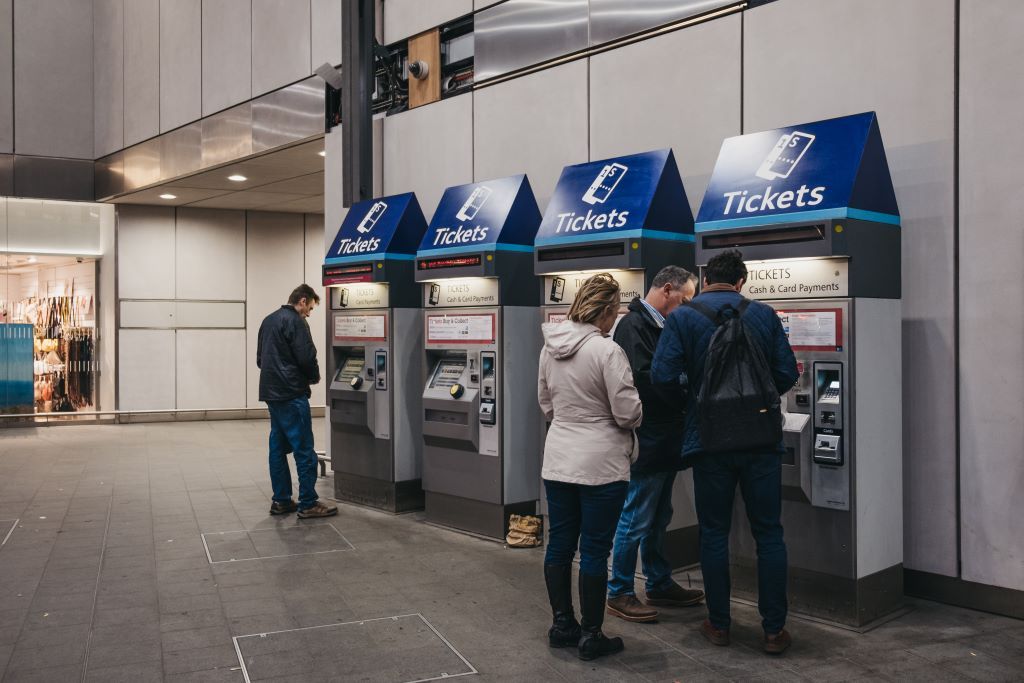
Nobbut Laiking, by Ross Brewster
For many elderly people, the disabled and the most vulnerable, lockdown has barely changed in meaning since the Covid pandemic.
There is an ongoing process, call it dehumanisation for want of a better word, of closures and loss of personal contact in the way we conduct our lives more and more impersonally.
Shops are closing because people order online. Banks have put the shutters up in town centres and, likewise, want to drive us online like sheep. And now railway ticket offices are under threat of being shut.
In all these respects, the public is expected to swallow the line that it is all about modernisation and therefore good for us as customers. It’s lockdown by another name.
Most of us are vaguely computer literate these days. Even I can order from Amazon online. But call me an old stick in the mud, I prefer to deal with a real person face to face rather than someone in a call centre regurgitating a training manual to get rid of awkward customers.
I don’t travel much by train. The whole ticketing business has me baffled and bewildered and now ticket offices are targeted for closure, it makes me less likely to let the train take the strain. One more human contact given up to convenience.
I’m with union boss Mick Lynch on this one. He’s no fan of dehumanisation either. Without being paranoid about yet another closure, I agree with Mick that reduced staffing will follow like night follows day.
Figures show that only 12 per cent of tickets are bought at rail ticket offices. But as one MP said in the Commons, that 12 per cent is still a heck of a lot of passengers.
That figure includes pensioners, the disabled and the most vulnerable in society. For them, chatting to the face in the ticket office about getting the best ticketing deals is a comfort blanket set against the stress of travelling.
I’ve got a friend who is partially sighted and needs the ticket offices to facilitate his regular rail trips. He calls staff the “best ambassadors” for the railways. So what are they going to do? Get shot of them.
Right across the economy we are witnessing a stripping out of all human contact as we the self-confessed confused press our keyboard buttons in the vain hope that somewhere down the line our tickets have been booked, our bank accounts are safe or our goods are set for delivery.
Closing ticket offices may not affect the majority of folk, but be assured it is an important service to a section of the public which is becoming ever more disenfranchised in the false name of progress.
Pay and conditions for care workers needs reforming urgently
They are what has been termed our “hidden army”. Only those with relatives or friends in the care system understand just what an under-valued and poorly rewarded service it is.
I’ve personally seen the work of care sector staff at close quarters in recent months through having a close friend effectively become a permanent resident in a home.
An ageing population means there will be greater future need for care workers, yet we have a vacancy rate of nearly 10 per cent, or around 152,000.
A report from the Skills For Care body has, on the surface, some good news in saying vacancies in social care have finally begun to fall, probably due to the 70,000 recruited from abroad. There is no sign that British workers see the pay and lack of career prospects as much of an attraction.
It has been estimated that social care posts will need to increase by 445,000, up to 2.3 million, by 2035. Unless and until social care is given the esteem and pay it deserves, a growing crisis in the sector is inevitable.
It’s well-known that, when a supermarket opens near to a care facility, staff are understandably tempted to move somewhere that offers better pay and less stressful work. Nine out of 10 supermarkets in this country pay wages higher than the average social care worker can expect.
Long term planning is never the strong point of any government and social care has long been hamstrung by low pay and difficult working conditions without any real acknowledgment or strategy to bring about change in the future.
This hidden army makes up 5.2 per cent of the total workforce in England. More indeed than the NHS or schools.
Pay and conditions need reforming and fast. Only then will those working in homes like the one I’ve seen a good deal of recently, will feel truly respected and valued.
Vive le Tour!
Pardon my French.
But for three weeks every summer, I confuse people by displaying my limited range of French language.
Lanterne rouge, tete de la course, poursuivants, maillot jaune. You’ve probably guessed by now, I’m a devoted fan of the Tour de France cycle race — and that from someone who can’t even ride a bike.
Le Tour is, in my opinion, the best of the summer sporting occasions. It calls for courage, skill and the ability to absorb physical suffering.
To all the riders I say one word — chapeau.








